5. Blade Runner 2049
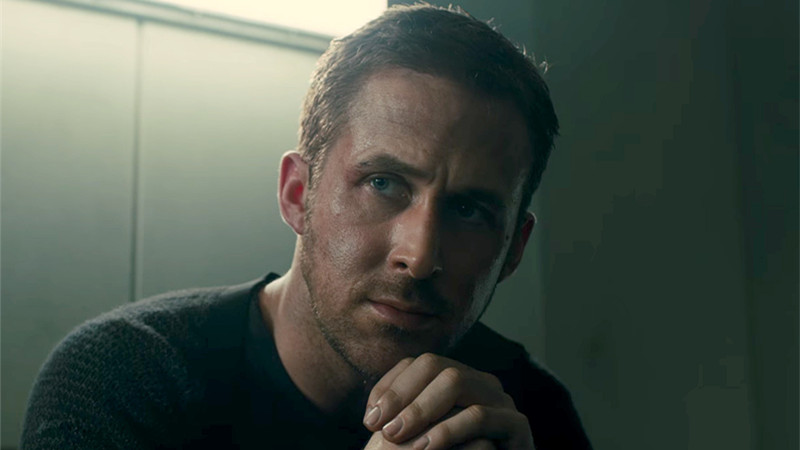
In a year with so many great blockbusters, the best of the bunch play against convention and tell a smaller scale narrative inside of a massively scaled blockbuster package. Movies that have the soul and storytelling of indies. It’s not surprising that the best of these are helmed by directors that cut their teeth in independent storytelling, auteur-driven filmmakers who have a definite sense of self in their storytelling. They can make movies all their own while fitting perfectly into a predetermined narrative.
Denis Villeneuve is one of those guys. He may have pulled off the biggest miracle of the year. He came in to make a sequel to a movie from more than 30 years ago that failed for being too cerebral and cold and doubled down on all those elements that kept people away. Not only did he make a movie that honored the legacy of that original movie, it bettered it.
The movie has the same coldly intellectual noir feel that the original had, but it has a better narrative in it. The original kind of has a weirdly structured narrative where you can’t really connect deeper to the movie. This one spins an interesting yarn and builds a narrative without an easy resolution. It inverts the narrative of the original.
The themes are deepened and the quest to understand what it means to be alive is so richly explored. The casting is great. Ryan Gosling perfectly plays his role. The secrets of the movie will not be revealed here, but it has to go without saying that the movie is so goddamn smart and so entertaining. It’s the best looking movie this year and it is in the running for the smartest. It’s a perfect package that will last a lot longer than its dire box office would indicate.
4. Star Wars: The Last Jedi
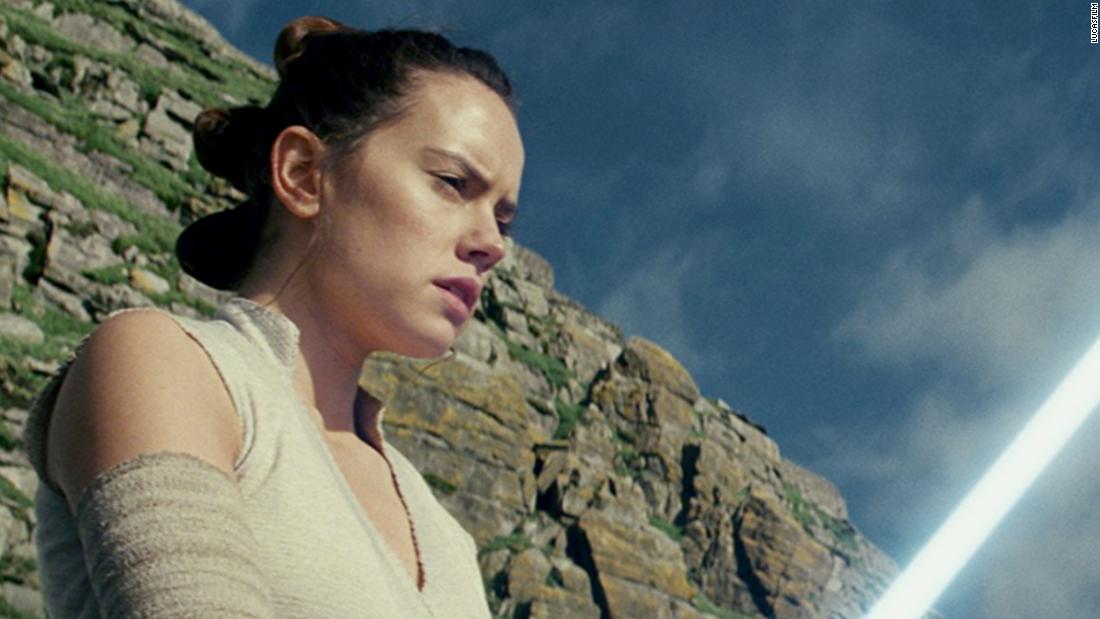
Disney buying up the Star Wars franchise in that massive LucasFilms buyout pretty much guaranteed that Star Wars would be in our lives for the rest of our days. After a limited amount of output in the previous 30 some odd years that took a real quality control hit in the more recent output that also doubled as a severe poisoning of fandom, it couldn’t be anything but a big step up from those prequels. And really, they have been the best case scenarios thus far (if you aren’t a nitpicking scrooge that is).
“The Force Awakens” was the best case scenario for nostalgia based filmmaking, using the cyclical nature of the series and our own world to bring back past glories while also twisting them in new ways to set a new path forward.
“Rogue One” was a step backwards to imbue the present, as it is a feature length look at how a rebellion is started. It also was the first movie to really put the war into Star Wars, featuring the most breakneck and thrilling action in all of the series. The weight of human loss in this spectacle-filled finale was a new feeling for the series, as it has always lacked that sense as the narrative has always been so laser focused on the Skywalker saga.
Now, Rian Johnson came in as the first writer/director in the saga since Lucas to helm the next chapter that would really signify what the series really was now that the introduction was over. And holy crap, did he nail it. He took the elements of “The Force Awakens” and “Rogue One” that we had previously mentioned and brought forth its whole new elements. It’s the freshest entry in the series since “The Empire Strikes Back,” and it’s arguably as good or better than that one.
For a series all about the weight of the past and how the past imbues the present, there has never been this one element involved. Move away from the past. Learn from those mistakes but stop living in them. It’s a massive philosophical statement for the viewers, as we are currently inundated in our own First Order nonsense. But it’s also a statement for the series itself. The past will always be with us.
The original trilogy will always be there. But there’s a reason the prequel trilogy didn’t (amongst too many others to count). They were too busy being love letters to itself that they couldn’t be anything fresh. Johnson is saying that Star Wars needs to move forward to stay fresh.
And really, in a cinematic world that is so in love with remakes and redos and adaptations and redos of adaptations, that’s a pretty bold statement to make. And it may be way some of the most pathetic fanboys have revolted against the movie. Saying their youth isn’t so important that we need to keep circling the same ol’ beats again and again to make them feel good. Now, the movie is smart as a whip in its examination of the past and how failure is a tough but vital lesson. But most importantly, it’s a rollicking good time and just thrilling as all hell.
The filmmaking on display is stunning. The action is great and once again manages to really highlight the weight of war. The twists and turns are wonderful. It doesn’t bog itself down in the fan theories that the online pissants decided were important. It’s so rich and perfectly calibrated that it really couldn’t be anything else but this. For lifelong fans of the series, there are so many moments that will give you goosebumps and choke you up. So much iconic imagery and moments that it will make your head spin. It is just perfection.
3. Dunkirk
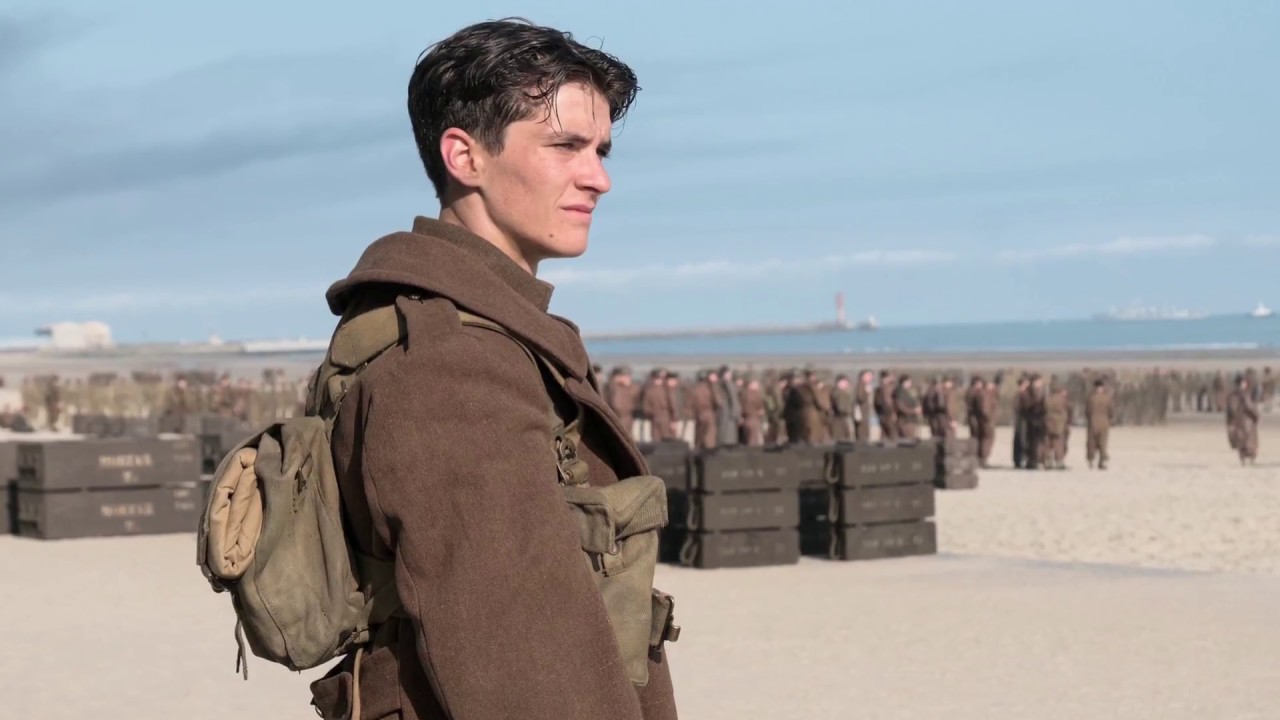
Christopher Nolan is one of those directors mentioned above, an indie-minded auteur who manages to make big scale movies feel much more intimate and special than some bland music video director for hire. But he’s also been in a bit of a downswing with his last two movies. “The Dark Knight Rises” and “Interstellar” were pretty big disappointments for him, even if both still have their ardent supporters.
There wasn’t the widespread support that he was constantly getting. He started to feel derivative of other filmmakers and not like himself. So there was some reason to get a little skeptical when he decided to make a World War II movie, continuing to chase the Spielberg thing he started chasing in “Interstellar.”
But lo and behold, not only did he not make a movie derivative of past master’s glories, he made maybe his best movie to date. At the very least, it’s the most purely Nolan movie he’s made. A movie that messes with time to deal with the weight of violence and the shared connectivity of war, it’s a fractured movie that tackles the same issues of relativity that “Interstellar” did, but in a much more interesting way. War is not a singular entity. It feels different to everyone involved. Tackling the evacuation of Dunkirk before World War II really kicked off, it’s about failure and hope.
Failure in the fact that the entire mission was a failure but hope in the sense that England stood up and saved hundreds of thousands of lives. Time is fleeting. War ravages us all. And the fact that it isn’t like Spielberg’s World War II opus is astounding. We never see the Nazis. We are always in the POV of the soldiers on the ground or in the air or on the water. It adds a real sense of dread to the whole thing. Gunfire can ring out anywhere with no tip off. Death is around every corner and it’s an unseeable force. And the fact that the movie is PG-13 and never shows blood or insane gore yet still packs an immensely visceral wallop is a real testament to Nolan’s talent.
It’s a movie that isn’t exactly plot heavy and not exactly filled to the brim with three-dimensional characters. But you get to know these guys through their actions and how they react to the hell they are living through. Even if many of the boys on the beach look shockingly similar, it’s to a point. War chews up and spits out young men like a machine and it’s all boys from the same world. They are essentially the same.
“Dunkirk” is one of the most intense, shockingly emotional and transcendent movies of the year. One of the best war movies ever. Nolan is back and he really highlighted why he is one of this generation’s best filmmakers.
2. War for the Planet of the Apes
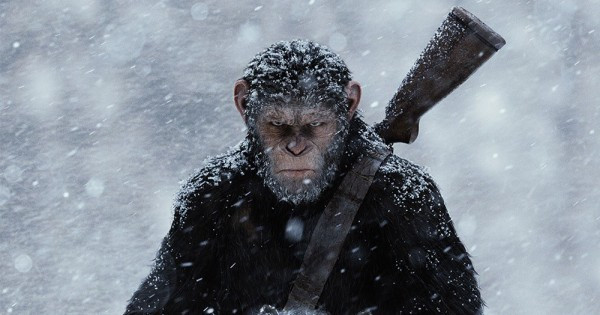
Another indie-minded blockbuster, this one highlights something that’s really irritating with fandoms and the online film community. When these people build up something in their minds, the real thing won’t measure up. No matter how masterful the movie is that they got. It’s the same problem “The Last Jedi” had but it may have been an even bigger problem here, as the movie kind of landed with a thud over the summer. Probably because it’s got “War” in the title and the prior movie set up a big ol’ massive war flick, and the reality was much more smaller and quiet and powerful than that dream.
Matt Reeves has quietly become one of the best directors working in mainstream cinema and he kept that streak alive with this entry by zigging into David Lean territory when the more small-minded audiences wanted him to steer into Ridley Scott territory.
There would be nothing wrong with a “Gladiator”or “Kingdom of Heaven” type movie in the Apes series. But by deciding to go the “Bridge on the River Kwai” or “Spartacus route instead, Reeves was able to really laser focus on Caesar and end his story on a truly mythological note. Caesar has to struggle with the reality that Koba may have had a point, and that humanity is much more darker than Caesar would have liked to admit. Humanity may be lost.
Caesar’s struggle with that is pushed right at the beginning and he has to fight the entire movie with coming back to the light. Going into a war camp headed by religious zealot Woody Harrelson and seeing first hand how much hate the humans feel toward apes really is the biggest test. The way we get to see how the ape world is much bigger than the little community Caesar created in “Rise of the Planet of the Apes,” and how there’s much more hope for them than they could have thought.
It’s a really beautiful movie filled with some of the most humanistic and emotionally rich storytelling of the year. Reeves kept the series tradition of being the best sci-fi franchise in film going, and he even subverted the trope of ending on a completely down note, going for bittersweet instead.
Caesar sees his people live and get their own land. They are free. But we as an audience must know that this is all going to go wrong. Caesar’s message will be corrupted and will be turned more toward Koba. It’s a tragedy in many ways. Continuing the religious iconography, it’s like the crucification of Jesus. These movies are too good.
1. Logan
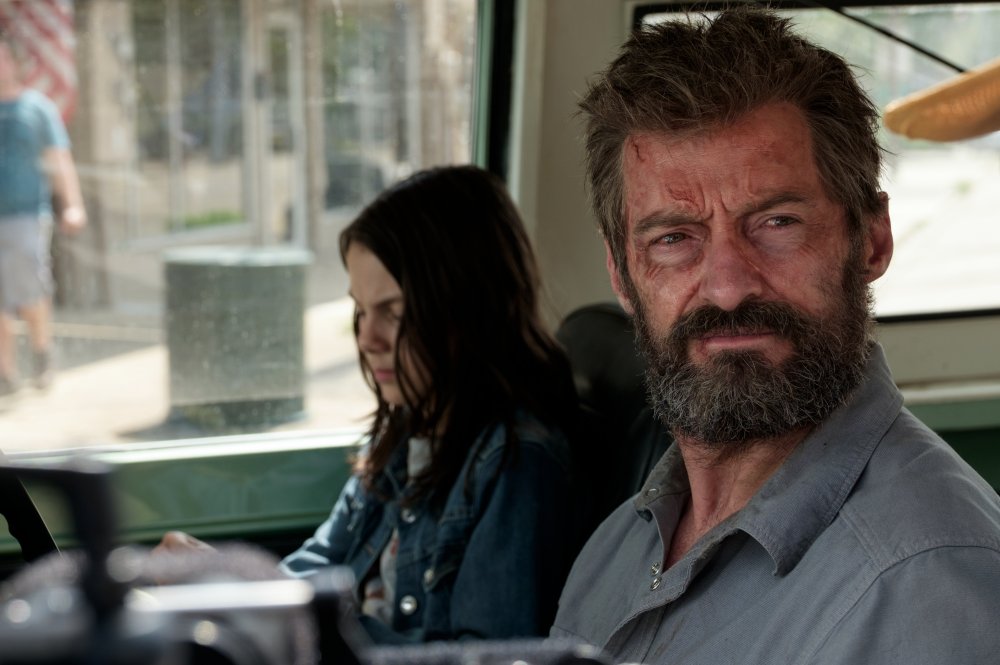
The X-Men series is one of the most baffling in filmdom. The continuity is essentially nonexistent. After trying to keep it together with 1 and 2, Bryan Singer left and handed the series over to other noted sexual offender Brett Ratner to demolish the Phoenix Saga that Singer was building toward. The series never really rebounded since. There was good moments with the series high point “First Class” and the decent follow-up “Days of Future Past.” But there’s almost as much bad as good in that series now.
The most surprising thing is that the series has become much stronger in its spinoff entries. “Deadpool” was an R-rated breath of immature fresh air. But “Logan” is inarguably the best thing in the pre-Disney X saga. It’s a movie that uses the damaged continuity to its benefit, highlighting the fact that Wolverine has been around for a long time but those stories we all know are not exactly correct.
The truth is that things are much messier. And now Logan and Xavier are in their twilight years and the world is on its way out. But when a little girl with powers is dropped on their doorstep, they are given a chance for redemption and one last chance to make the world a better place.
This movie is all sorts of things. A treatise on how violence weighs heavily on men. How the past continues to haunt us. How legacy and what we leave in the world is more important than the things we do. A movie about parenthood.
This is the “Unforgiven” of the comic book universe. The funny pages haven’t gotten a movie this good since 2008 when Nolan dropped “The Dark Knight” onto the world. It’s masterful. It’s emotional as all hell. It’s brutal and unforgiving. There’s a certain nihilism running through it, but also a true beating heart of hope in it as well. The turn of events is perfect and the ending is so much richer than we could have hoped for.
The amount of violence and foul language is shocking to those used to the PG-13 movies they have delivered, but it really works for this broken world. What’s most fascinating is that there isn’t a real main bad guy. There are three men who represent different facets of an overall idea. The idea of corporate evil. Forcing Logan to confront his mortality and his own life is so powerful. And watching Hugh Jackman say goodbye is painful. But this is a masterpiece of the highest order, and James Mangold killed it here.